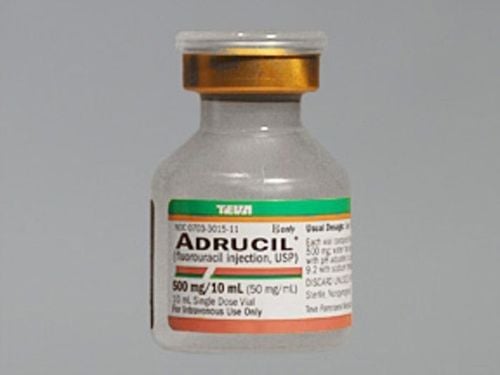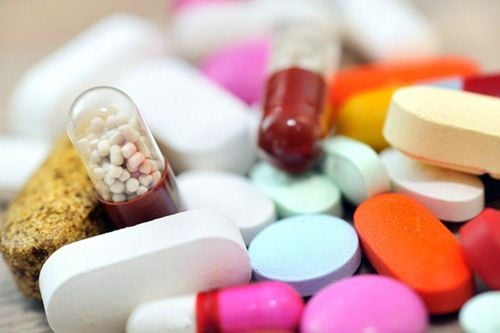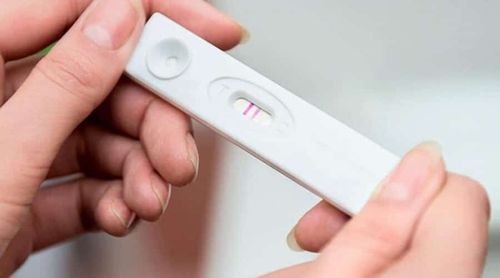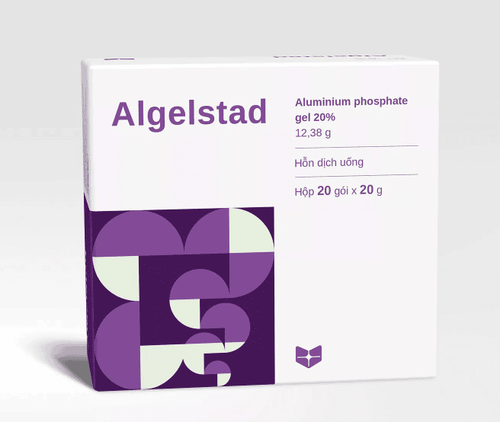This is an automatically translated article.
Colitis is a common disease in the gastrointestinal tract with typical symptoms of pain along the colon or lower abdominal pain, diarrhea, fatigue, etc. colon spasms? What medications are needed for the treatment to be effective?1. What is colitis?
The colon is an important organ and is one of the ideal environments for bacteria to grow and cause disease in the body. This is where food is stored and converted into feces and excreted through the rectum.
Colitis is an inflammatory condition that causes diffuse or localized lesions in the lining of the colon.
Inflammatory bowel disease has 2 stages: acute phase and chronic phase. In particular, acute colitis often occurs suddenly, starting with pain along the colonic frame or in case of lower abdominal pain, accompanied by other symptoms such as diarrhea, loss of appetite, fatigue. , rapid weight loss,...
When not treated properly and promptly, the patient may lose water and electrolytes, some cases develop into chronic colitis, which is difficult to treat completely. point.
2. Complications that can be encountered when having colitis
Colitis if not treated early and properly can cause dangerous complications, significantly affecting the patient's health:
The patient may have colon bleeding: This complication can occurs when the lining of the colon becomes severely inflamed. It is a condition where the protective villi layer of the colon is damaged after long-term antibiotic treatment, an unscientific, unhygienic diet, ... leading to colonic mucosal damage as a result. congestion and bleeding. Complications of acute dilatation of the colon: Occurs when there is a prolonged inflammation of the colon, making the function of digesting food impaired, leading to the risk of ulcerative colitis and colon perforation. Complications of colon perforation: Occurs because the patient takes long-term antibiotic treatment to destroy both beneficial bacteria in the intestinal tract and the villi are left bare. Ulcers that go deep into the colon cause the colon wall to wear down, leading to a long-term risk of colon perforation. Colon cancer is a complication of colitis: It is a condition in which the lining of the colon becomes inflamed for a long time and recurs many times, causing the epithelial cells to become dysplastic and develop into a malignancy in the colon. .
3. Treatment of colitis with what drugs?
Currently, there is no cure for inflammatory bowel disease. The problem of treatment is mainly based on treating the symptoms of the disease causing it. This helps the patient to better control their own inflammatory bowel disease.
In fact, using western medicine is the most commonly used treatment method by doctors. Depending on the severity of the disease and the health status of the patient, there are different treatment regimens. Some groups of drugs commonly used by doctors to treat colitis include:
Pain relievers, colon spasm relievers: are indicated for use when the patient shows signs of pain and cramping in the abdomen. . Drugs belonging to this group, in addition to reducing pain, antispasmodic and helping patients with colitis reduce bloating, flatulence, movement disorders, .. Commonly used drugs are: Nospa, spasfon, duspatalin , debridat... Drugs to relieve symptoms of constipation: This drug is used when the patient has a bowel movement less than 3 times a week, the stool is dry and hard, and the stool causes anal pain. The group of drugs that relieve constipation has a laxative effect and softens stools. Some commonly prescribed drugs by doctors include: Laxan (tablet form), Normacol (sugar-coated nuggets), Forlax (powder for solution), Macrogol (solution form), ... Depending on age and constipation, there is an appropriate dose. Anti-diarrheal drugs: Using drugs of this group have the effect of slowing intestinal motility, creating a membrane covering the mucosa to stop diarrhea. Some common anti-diarrheal drugs can be used by patients such as: Loperamide (tablet form), Diarsed (sugar coated tablet form), Smecta, Actapulgite, Imodium,... Abdominal: Patients are often prescribed to use the drug when there are symptoms of bloating and flatulence. Commonly used drugs include: Carbophos, Debridat, Duspatalin, Sorbitol, Motilium - M,... Intestinal bactericides: This group of drugs has the effect of killing harmful bacteria in the intestinal tract, fighting infections. . Some drugs that the patient may be prescribed include: Metronidazol (tablet form), Ciprofloxacin 500mg (tablet or solution form), Biseptol 480mg (tablet form),... The drugs in this group are anti-inflammatory drugs. birth, so it should only be used for a maximum of 5-7 days to avoid causing unwanted effects.
4. What should patients with colitis need to pay attention to when taking the drug?
Patients should only use medicine for treatment when prescribed by a doctor. Medicines need to be used at the right dose and for the right time. Absolutely do not use the medicine has expired, before use must check the expiry date on the label. Do not use an old prescription or someone else's prescription even if you share the same symptoms. Patients need to take the medicine at the right time for the drug to work best. Use the right medication. Colitis is a common gastrointestinal disease characterized by painful spasms along the colonic framework. Currently, the disease does not have a curative treatment, the most common is symptomatic treatment. When signs of the disease appear, patients should go to medical facilities for examination and use prescription drugs to effectively treat the disease and prevent possible complications.
Please dial HOTLINE for more information or register for an appointment HERE. Download MyVinmec app to make appointments faster and to manage your bookings easily.













